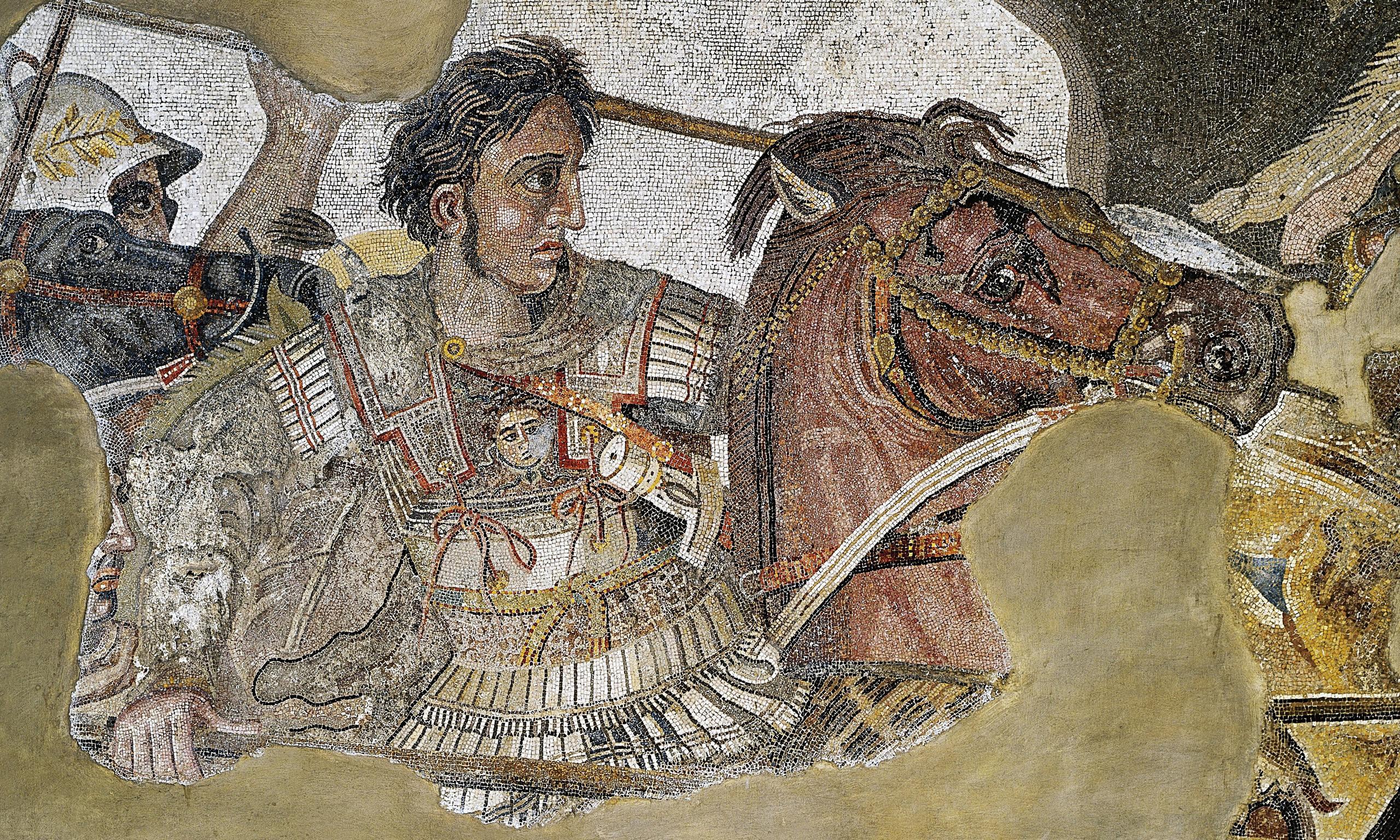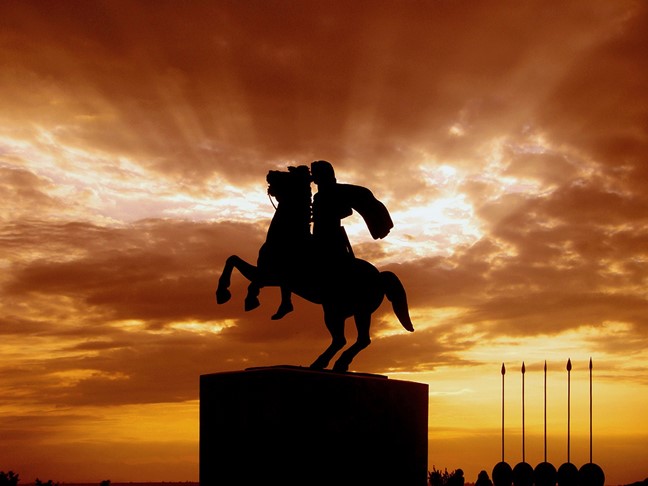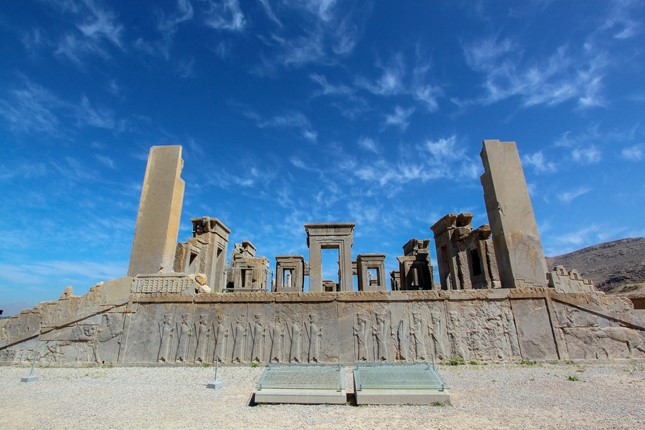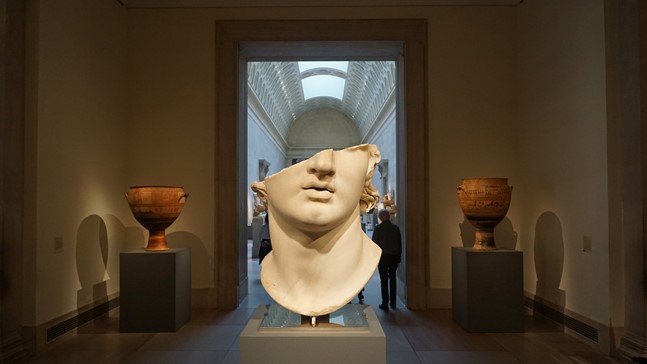
Posted by: Andy Kelly
Date: 30-07-2020
Alexander the Great once said that sex and sleep alone made him conscious that he was mortal. I would add a third to that list. Wine.
Born in 356BC to Philip II of Macedon and his wife Olympias, Alexander the Great is one of ancient history’s most enigmatic figures. His life is filled with tales of heroic bravery, military genius and personal strife. By the age of 20 he had become king of Macedonia, by the age of 30 he had conquered much of the known world and by 32 he had died with no suitable heir to carry on his legacy. He could be a brilliant general, an astute politician, a loyal friend and a magnanimous enemy. But he was plagued by paranoia, could be wickedly cruel, enjoyed connivance and was a needless risk taker. He was also a massive drinker with his fondness of drink causing some of the darkest episodes throughout his life. We’re going to highlight just a few of these here.
Contemporary historians were all too eager to highlight Alexander’s love of alcohol. Arrian (2.14), writing approximately 400 years after Alexander’s death, says he drank in moderation but over time he began to drink to “barbaric excess”. Plutarch (Alex. 4) attributes his fondness for drinking on his warm temperament whilst Quintus Curtius Rufus (5.7) asserts that all of his qualities were marred by his “inexcusable fondness for drink”.
That Alexander drunk wine was a given. Wine was the drink of choice throughout Ancient Greece with plenty of good quality wine available, especially to kings and nobles. It’s likely that the finest wines of Chios, Chalcidice and Naxos graced Macedonian banqueting halls with Bibline and Pramnian wines from Turkey being the staple drink when on campaign. The Ancient Greeks diluted their wine with water and viewed anybody who drank their wines undiluted as barbaric. The Macedonians on the other hand, drank their wine undiluted, earning the derision of their more civilised neighbours. Alexander’s Father, Philip, who himself was a big drinker, was even ridiculed in his own time with the Athenian Orator Demosthenes quipping “Heavy drinking is a good quality in a sponge but not a king”.
Judging by the behaviour displayed by some characters here, he hits the nail on the head.

It was the summer of 337BC and things were looking good for Alexander’s father, Philip. Greece had accepted Macedonian Hegemony after being crushed at Chaeronea and his generals had already begun making plans for his march eastwards towards Persia. He’d also fallen head over heels in love. Philip was a pragmatist and a polygamist whose marriages usually ratified peace treaties following successful military campaigns. This time it was different however. This time he was truly in love. This time his bride, Cleopatra, was also Macedonian. The potential ramifications weren’t lost on Alexander’s mother Olympias who was from Epirus. A calculated and wicked woman in her own right, she began inciting Alexander to oppose Philip.
The atmosphere at the wedding banquet was tense. As Alexander took his seat as the guest of honour he quipped to Philip “When my mother remarries, I’ll invite you to her wedding”. Things went south from there. As the evening progressed Cleopatra’s father, Attalus, had gotten leathered and decided to toast the marriage, urging all revellers to pray for a true Macedonian heir. Alexander, doubtless lubricated with wine, was incandescent with rage. He launched his drinking cup at Attalus and bellowed “So do you take me for a bastard then?”. The cup hit Attalus square in the head and now Philip, who by this time was also legless, rose to his feet, drew his sword and started towards Alexander. Before he could reach him however, he fell over a table and collapsed in a heap on the floor. Alexander, now standing over his father remarked to the room: “Here is the man who is making plans to cross from Europe to Asia and he can’t even make it across from one couch to another”. With that, Alexander left the feast and fled. Within a year Philip would be assassinated and Alexander would be king.
There is little else mentioned in the sources about Alexander’s relationship with wine at this early stage in his life but it’s clear that the alcohol could already have a negative effect on him. Had he of been sober, he would have likely shrugged Attalus off but because Olympias had been planting the seeds of doubt in Alexander’s mind about his place as rightful heir (As Olympias was from Epirus, Alexander was only “half Macedonian”) he couldn’t let it go. It’s likely that Attalus didn’t mean his toast as a barb to Alexander but it would have dire consequences nonetheless. Within a year of Philip having been killed, Cleopatra, two of her sons and Attalus were all dead.
The Alexander who fled the wedding feast in 337BC was a very different man to the Alexander who had now conquered Persia. He had flattened the Persians in 3 major battles, completely nullified the Persian navy without fighting a single naval skirmish, liberated Egypt from the clutches of Persian rule and had the Persian king, Darius III on the run. He had displayed military brilliance, acts of kindness, loyalty and compassion. He had also toiled with the legacy of his father and was riddled with jealousy, even seeking to disavow Philip and claim that he was the son of Ammon. He was also plagued by intrigue and plots to kill him.
Alexander arrived in Persepolis (just north of Shiraz in Iran) hot on the heels of Darius. Persepolis was one of the greatest cities of the Persian empire and inside Alexander found the city’s wealth largely untouched. The Macedonians had a field day and went on a bender. Alexander meanwhile, showed restraint, until he’d had a drink.
Whilst stationed at Persepolis, Alexander accepted an invitation to a drinking party with some of his friends. Unusually, his friends were accompanied by their wives & mistresses and they made merry throughout the night. As the evening wore on and Athenian mistress named Thais got up and gave a speech praising Alexander’s deeds and imploring the party to burn Persepolis to the ground. Curtius continues the story: “As the drunken whore gave her opinion on a matter of extreme importance, one or two who were themselves the worse for drink agreed with her. The king too, was enthusiastic rather than acquiescent…They were all flushed with wine, and they got up, drunk, to burn a city which they had spared while under arms. Alexander took the lead, setting fire to the palace, to be followed by his drinking companions, his attendants and courtesans. Large sections of the palace had been made of cedar so the conflagration quickly spread over a large area”.

The burning of Persepolis, whether committed sober or drunk was senseless desecration. Afterwards, Curtius alludes that the Macedonians were ashamed that they had burned the city and that Alexander himself regretted it once sober. A lot had happened since 337BC, Alexander had marched thousands of miles, seen countless thousands killed in battle, lost many good friends and had even come close to being killed himself. Along the way there were many drinking parties like this one which would have done little to keep him grounded. That he was easily persuaded to burn the city to the ground after not giving it much thought when sober gives us an interesting insight into his psyche, especially as he had committed a similar act only as a last resort against Thebes in 335BC. It was now possible that a dangerous mixture of undiluted wine coupled with blatant sycophancy could lead him down a dangerous path, a path which he would tread more often as we shall see.
A distinguished officer in the Macedonian army, Cleitus the Black had served with distinction under both Philip and Alexander. Cleitus had been invited to a banquet in his own honour as he was about to embark on a governorship of Bactria (parts of modern-day Afghanistan, Uzbekistan and Tajikistan), one of Persia’s largest and most troublesome provinces in 328BC. The night started like any other, with plenty of feasting and wine but tensions soon rose and the evening descended into chaos. Alexander, who now denounced his father whenever he could and whose ego had been lubricated with wine, began to boast that his deeds surpassed those of Philip and even Heracles. Cleitus, who was one of the old guard, didn’t take too kindly to having Philip’s achievements diminished and shot back a drunken riposte, saying Philip’s achievements surpassed Alexander’s. Irked by Cleitus, Alexander encouraged his companions to denounce Philip and even brought in a performer who sung derogatory songs about other Macedonian generals.
It soon became a shouting match, not just between Alexander and Cleitus but between the Macedonian new guard who supported Alexander and the old guard who were outraged by the disrespect they were being shown. Back and forth they went, spitting out barbs and taunts until an incensed Alexander picked up an apple and hurled it at Cleitus. At this stage, cooler heads on both sides sensed trouble and began splitting the pair up, ushering them out of separate doors in the banqueting hall. Cleitus was the first to break free and spat one last barb at Alexander. Alexander, now incandescent with rage, wrestled free of his companions, seizing a spear in the process. He then stormed towards Cleitus and ran him through with the spear, killing him instantly. Initially, Alexander taunted the dead Cleitus but was soon overcome with grief that he had killed his friend. He even had to be restrained from taking his own life with the very same spear.
The killing of Cleitus the Black remains one of Alexander’s darkest deeds. Cleitus’ sister had helped raise Alexander when he was a boy and Cleitus had even saved Alexander’s life at the battle of Granicus in 334BC. Ravaged by paranoia, he couldn’t shake the spectre of his father, whose deeds he always sought to undermine. There was always a new guard vs old guard atmosphere throughout the Macedonian army and Alexander’s methods to remedy this only inflamed tensions further. With a belly full of wine Alexander’s personality had become very ugly indeed.
A competent, if unassuming general, Hephaestion was Alexander’s oldest and closest friend. In many of the contemporary narratives, they are inseparable for much of the Persian conquest and, you might be surprised to hear, Hephaestion loved a good booze up. In 324BC Alexander and Hephaestion had arrived in Ecbatana (in modern day Iran) and as soon as all important business was attended to, Alexander staged a lavish festival in honour of Dionysus, the Greek god of wine. During the day there were feasts, athletics, dramatic performances and during the evening there were monumental drinking parties. At one such party, Hephaestion was enjoying his fair share of wine when he suddenly collapsed and was carried to bed. He was quickly diagnosed with a fever and his physician prescribed a strict diet to aid his recovery. Initially, Hephaestion stuck to his new regimen but, feeling better and not wanting to miss out on any more partying, ate a boiled chicken and downed half a gallon of chilled wine.
He quickly relapsed. Alexander was enjoying some athletic games in the stadium when he was warned that Hephaestion’s condition had worsened. By the time Alexander reached him, Hephaestion was dead. Stricken with grief, Alexander had Hephaestion’s physician crucified and temples to local gods were razed to the ground. He even went as far as to massacre a small local tribe called the Cosseans and dedicate their deaths in honour of Hephaestion. Alexander was becoming unhinged.

Not long after Alexander arrived back in Susa (Zagros mountains, Iran) in 323BC his friend and philosopher Calanus approached him and said he was going to immolate himself rather than live any longer as an invalid (as you do). Calanus actually went through with the deed, burning himself alive in front of thousands of people and in his honour, Alexander decided to hold a drinking game. The rules of the game were simple, whoever drank the most wine in one sitting would be the winner and would receive a golden crown.
The prize on offer would have set most men up for generations so there wasn’t a shortage of contestants who set about drinking themselves stupid. 42 of them would quickly die of alcohol poisoning. Promachus, who won the contest having downed roughly 13 litres of unmixed wine, claimed his prize and the adulation of the Macedonians. He died 3 days later of alcohol poisoning. All for a Gymnosophist who had little time for physical pleasures such as wine.
Alexander returned to Babylon (In Iraq) in 323BC and by this time had become “So much obsessed by his fears of the supernatural and so apprehensive in his own mind, that he interpreted every strange or unusual occurrence, no matter how trivial as a prodigy or portent” (Plut. Alex 75). He seems to have shrugged this apprehensiveness off though as he threw a massive drinking party in honour of his admiral Nearchus who had just arrived in the city. The revelry lasted long into the night but Alexander had the presence of mind to excuse himself. On his way to bed he was stopped by another friend, Medius, and agreed to carry on drinking at his home which lasted into following day. Accounts differ on what happens next but they all agree on one thing. Alexander suddenly feels ill and becomes delirious.
He remains feverish and over the next 10 days his condition worsens up until the point where he can no longer speak. He finally succumbs to his ailments and dies in June 323BC.
Debate rages about the circumstances surrounding Alexander’s death. The sources all agree that he falls ill after having been on one of his epic benders but many modern scholars have a different take. Many suggest that he was already feeling the effects of malaria, typhoid or other illness and his partying exacerbated the symptoms. But there is another theory that deserves further mention, that Alexander’s wine had been poisoned.
Many of the ancient sources allude to this theory though it is often dismissed. The problem is that there wasn’t a shortage of people who wanted Alexander dead and there wasn’t a shortage of poisons that could be slipped into his wine either. A constant thorn in Alexander’s side had been his own regent in Macedonia, Antipater. It had gotten to the point that Alexander had even summoned him to Babylon and Antipater feared that he was going to be killed. Was it possible that Antipater, with the help of his sons Cassander and Iollas, poisoned Alexander to save himself? Absolutely. Suspicions are roused even further if you compare the circumstances surrounding Alexander’s death to Hephaestion’s. It would therefore not be unreasonable to assume that Hephaestion was poisoned first to eliminate the most likely successor and then Alexander himself was killed.
But, how could the poison get into his wine without him knowing? Easy. Iollas was Alexander’s cupbearer whose responsibility it was to taste and pour Alexander’s wine. Iollas could have easily slipped any number of poisons into the wine unbeknownst to Alexander. It’s not as if poisons were the stuff of myth either; arsenic, strychnine and hellebore were all commonplace in the 4th century BC and they were all tasteless and odourless.
However, it may just be that Alexander, like Hephaestion and the contestants in the drinking game, died of alcohol poisoning. We should remember that by 323BC Alexander had spent almost twelve years away from home and by the time he reached Babylon for the second time he had marched approximately 25,000 miles. Throw in four huge battles, countless sieges, numerous life altering injuries and at least one near death experience. Add to this the constant political strife, the conspiracies, rebellious provinces, in-fighting amongst his generals and the mutinies from his own army and you can begin to understand the toll it would take on body and mind. Mix all of this with a dangerously unhealthy drinking habit and it’s reasonable to suggest that Alexander’s body could take no more. You could even argue that he had long been an alcoholic.
Sadly, we may never know the true cause of Alexander’s death because his tomb has been lost to history over time. What we do know is that many pivotal incidents in Alexander’s life were shaped around his love of wine. For him, wine was no more inescapable than his next conquest. He used it to give him pleasure, to allow him time away from being king, commander and statesman but over time it changed him. He would quickly drink to excess and sensible suspicions would give way to vitriol, connivance and paranoia. He was surrounded by men who were no less fond of wine than he was and there was never anybody brave or willing enough to bring him back from the brink, allowing him to spiral out of control.
He once said that sex and sleep alone made him conscious that he was mortal. I would add a third to that list. Wine.
Further Reading:
Arrian, The Campaigns of Alexander, Translated by A. de Selincourt, Penguin, 1971
Green. P, Alexander of Macedon – A Historical Biography, University of California Press, 1991
Heckel & Yardley, Alexander the Great – Historical Sources in Translation, Blackwell Publishing, 2005
Philips. G, Alexander the Great – Murder in Babylon, Virgin Books, London, 2004
Plutarch, The Age of Alexander, Translated by Ian Scott-Kilvert, Penguin, 1973
Quintus Curtius Rufus, The History of Alexander, Translated by John Yardley, Penguin, 2001